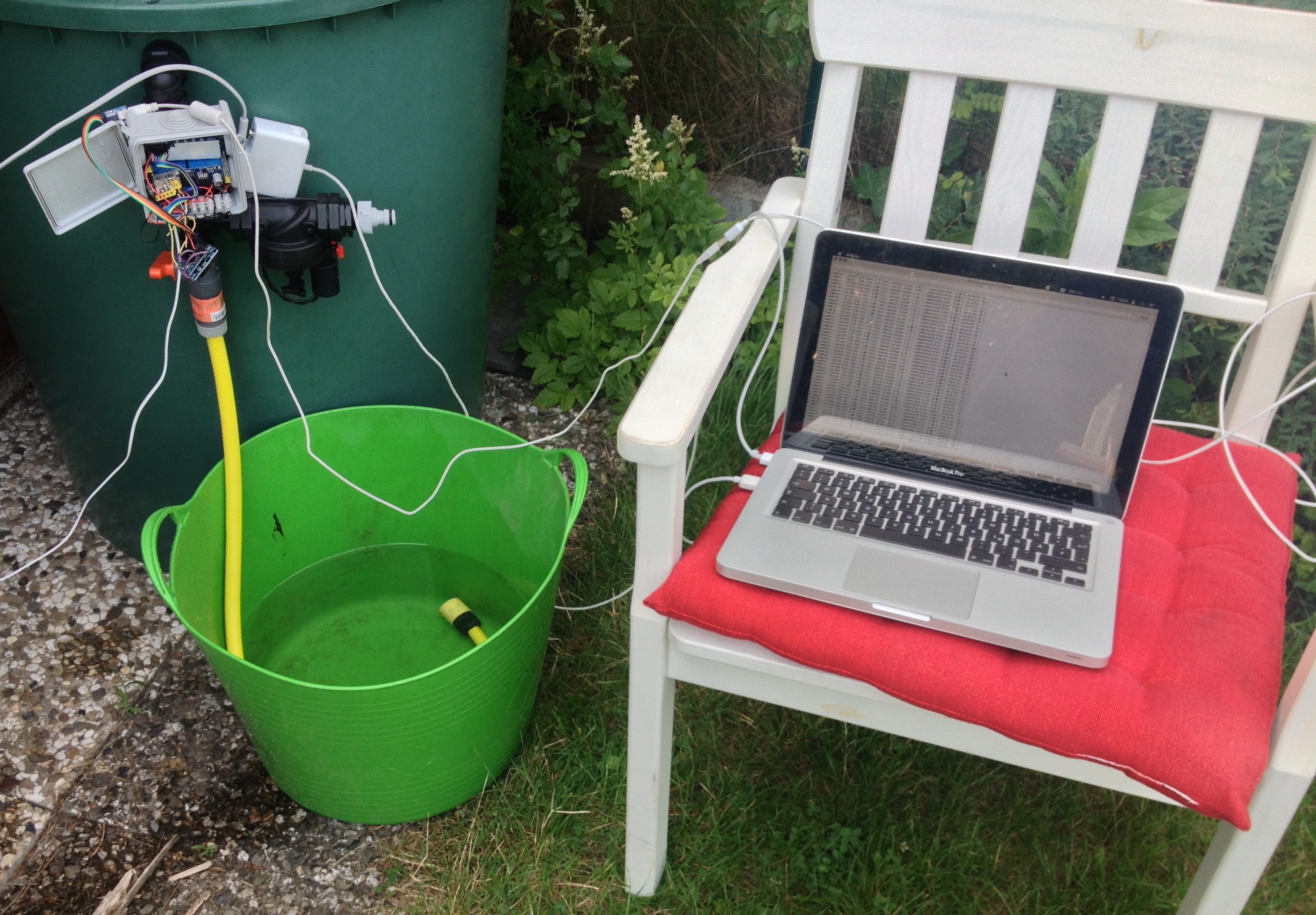FlowMeter is an Arduino library that provides calibrated flow and volume measurement with flow sensors.
You can use it to count flow and volume of liquids and gases (although the documentation focuses on applications using liquids) and can support multiple flow sensors at the same time.
It also works as a totalizer, accumulating total volume and average flow rate over the run time of your project.
A provision for calibration helps you to get the most out of your sensor. You can even estimate the recent and overall error margin.
The library is intended for use with flow sensors that provide a frequency output signal proportional to flow, although other types of sensors could be made to work.
Getting started with FlowMeter is easy. Take a look at this simple example:
void setup() {
// prepare serial communication
Serial.begin(115200);
// get a new FlowMeter instance for an uncalibrated flow sensor on pin 2
Meter = new FlowMeter(digitalPinToInterrupt(2), UncalibratedSensor, MeterISR, RISING);
}
void loop() {
// wait between output updates
delay(period);
// process the (possibly) counted ticks
Meter->tick(period);
// output some measurement result
Serial.print("Currently ");
Serial.print(Meter->getCurrentFlowrate());
Serial.print(" l/min, ");
Serial.print(Meter->getTotalVolume());
Serial.println(" l total.");
//
// any other code can go here
//
}In the above example, a flow sensor is assumed to be connected to the INT0 pin. The corresponding object Meter is updated every period (in milliseconds, e.g. 1000ms).
So after every measurement period, the current flow rate and the total volume are printed out.
Please read on in the examples section of the library's documentation pages.
Just check out the FlowMeter Repository on GitHub (or download the ZIP archive) and copy it to your libraries/ folder (usually within your Arduino sketchbook).
See the installation section in the documentation pages for more.
The FlowMeter library expresses flow in the unit l/min. Most units of measure can be derived by simple conversion (just try not to measure in Sverdrups).
As an example, conversion between l/min and US gal/min can be done with a factor of 3.78541178, conversion from min to s with a factor of 60.
Please make sure you consult the documentation in order to further understand how the library works.
The FlowMeter library can be used with many different flow sensors right away. Some sensor examples are listed in the documentation.
For many projects you don't need to worry about calibration. But it still makes sense to be aware of the limitations that come with an uncalibrated sensor in a metering application.
It's easy to calibrate yourself. Preferrably you'd do this after installing the sensor into your project. The flow meter then benefits from increased precision within the viscosity and flow range of your application.
There's a complete how-to in the documentation.
For further details please take a look at the FlowMeter documentation pages.
Also, the library source code (in the folder src/) and the examples (in the folder examples/) are fully documented.






